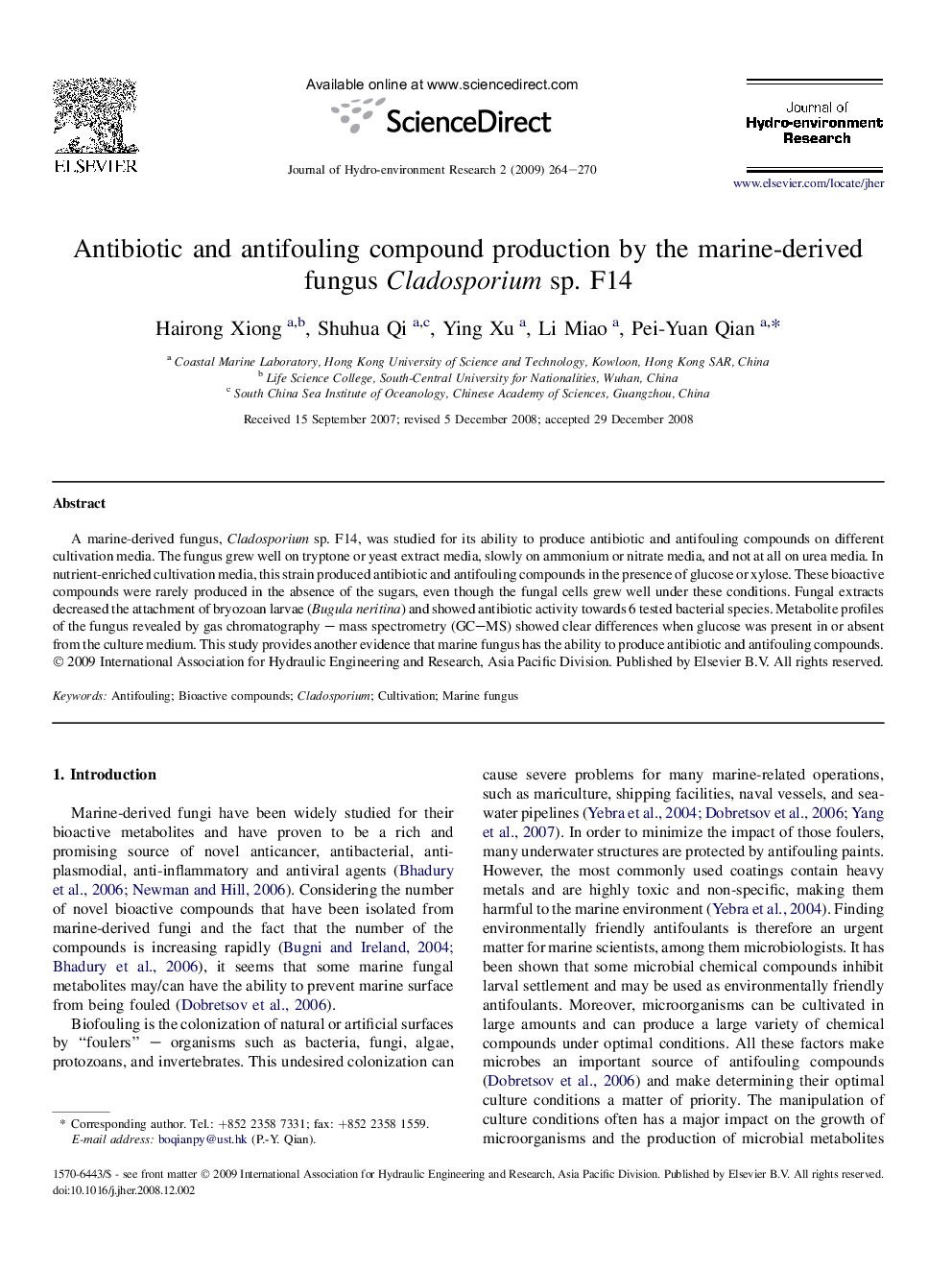| Article ID | Journal | Published Year | Pages | File Type |
|---|---|---|---|---|
| 4493870 | Journal of Hydro-environment Research | 2009 | 7 Pages |
A marine-derived fungus, Cladosporium sp. F14, was studied for its ability to produce antibiotic and antifouling compounds on different cultivation media. The fungus grew well on tryptone or yeast extract media, slowly on ammonium or nitrate media, and not at all on urea media. In nutrient-enriched cultivation media, this strain produced antibiotic and antifouling compounds in the presence of glucose or xylose. These bioactive compounds were rarely produced in the absence of the sugars, even though the fungal cells grew well under these conditions. Fungal extracts decreased the attachment of bryozoan larvae (Bugula neritina) and showed antibiotic activity towards 6 tested bacterial species. Metabolite profiles of the fungus revealed by gas chromatography – mass spectrometry (GC–MS) showed clear differences when glucose was present in or absent from the culture medium. This study provides another evidence that marine fungus has the ability to produce antibiotic and antifouling compounds.
